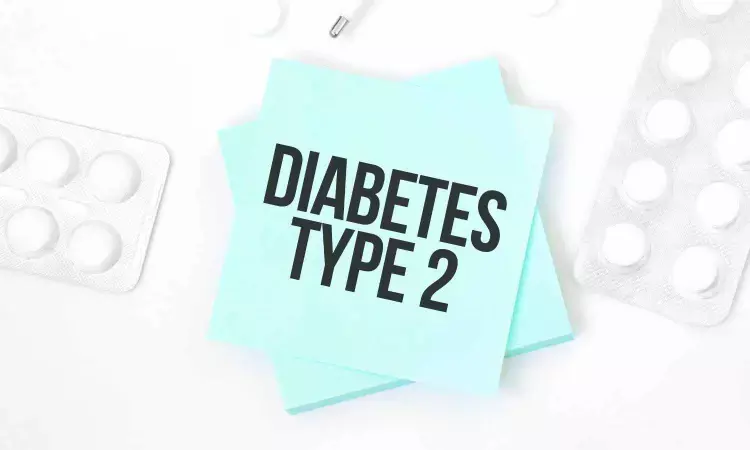- Home
- Medical news & Guidelines
- Anesthesiology
- Cardiology and CTVS
- Critical Care
- Dentistry
- Dermatology
- Diabetes and Endocrinology
- ENT
- Gastroenterology
- Medicine
- Nephrology
- Neurology
- Obstretics-Gynaecology
- Oncology
- Ophthalmology
- Orthopaedics
- Pediatrics-Neonatology
- Psychiatry
- Pulmonology
- Radiology
- Surgery
- Urology
- Laboratory Medicine
- Diet
- Nursing
- Paramedical
- Physiotherapy
- Health news
- Fact Check
- Bone Health Fact Check
- Brain Health Fact Check
- Cancer Related Fact Check
- Child Care Fact Check
- Dental and oral health fact check
- Diabetes and metabolic health fact check
- Diet and Nutrition Fact Check
- Eye and ENT Care Fact Check
- Fitness fact check
- Gut health fact check
- Heart health fact check
- Kidney health fact check
- Medical education fact check
- Men's health fact check
- Respiratory fact check
- Skin and hair care fact check
- Vaccine and Immunization fact check
- Women's health fact check
- AYUSH
- State News
- Andaman and Nicobar Islands
- Andhra Pradesh
- Arunachal Pradesh
- Assam
- Bihar
- Chandigarh
- Chattisgarh
- Dadra and Nagar Haveli
- Daman and Diu
- Delhi
- Goa
- Gujarat
- Haryana
- Himachal Pradesh
- Jammu & Kashmir
- Jharkhand
- Karnataka
- Kerala
- Ladakh
- Lakshadweep
- Madhya Pradesh
- Maharashtra
- Manipur
- Meghalaya
- Mizoram
- Nagaland
- Odisha
- Puducherry
- Punjab
- Rajasthan
- Sikkim
- Tamil Nadu
- Telangana
- Tripura
- Uttar Pradesh
- Uttrakhand
- West Bengal
- Medical Education
- Industry
Weight and HbA1c Reductions Significantly Lower Death Risk in T2D, suggests study

Researchers have found in a recent study that weight loss and lowering blood sugar levels lower significantly the all-cause mortality risk in patients with type 2 diabetes. This was concluded based on a large-scale meta-regression and meta-analysis of more than 270,000 patients. The study was published in the journal Diabetes,Obesity & Metabolism by Alhassane D. and colleagues. The research gives emphasis to targeting weight as well as glycaemic targets in the treatment of this chronic condition.
The study sought to explain how alterations in body weight or HbA1c level influence the relative risk of all-cause death. To achieve this, investigators thoroughly searched MEDLINE, CENTRAL, and EMBASE databases as of March 31, 2025, for large-scale glucose-lowering trials. Data for analysis were only used from studies with more than 1,000 patient-years of follow-up in both groups to capture high-quality, long-duration data. The main outcome of interest was all-cause mortality, with cardiovascular and kidney outcomes also assessed. The study protocol was pre-registered with PROSPERO (CRD42022355479),
The authors performed a meta-regression from 44 randomized controlled trials, which included 274,800 patients with type 2 diabetes. Random-effects models were employed to estimate effects per unit change in weight or HbA1c. The event rates and hazard ratios (HRs) were extracted with care, and where necessary, adjustments were made for HbA1c to remove the effect of body weight on an individual level.
Key Findings
• All-cause mortality was decreased by 7% with glucose-lowering treatments versus placebo or active control (HR 0.93; 95% CI: 0.89–0.96; p < 0.0001).
• There was considerable heterogeneity across drug classes in the way they affected mortality (p for interaction = 0.0006).
• Every 1-kg difference in body weight between control and treatment groups was associated with a 3.1% decrease in mortality risk (95% CI: 1.4%–4.9%; p = 0.0003).
• Every 1-kg body weight loss persisted strongly related to a decrease in all-cause mortality by 3.4% (95% CI: 1.8%–5.1%; p < 0.0001).
• Separately, each 1% decrease in HbA1c was associated with an odds ratio of 7.6% lower all-cause mortality (95% CI: 0.9%–14.8%; p = 0.0246).
In type 2 diabetes patients, weight reduction and enhanced glycaemic control, both independently, decrease the risk of all-cause mortality. A 3.4% reduction in mortality resulted from each 1-kg weight loss and a 7.6% reduction in mortality risk was associated with each 1% HbA1c decrease. These findings reinforce the key importance of multidisciplinary diabetes management strategies that target both weight and glycaemic goals to avoid premature mortality and cardiovascular-related morbidity.
Reference:
Diallo A, Villard O, Carlos-Bolumbu M, Duc P, Galtier F. Blood glucose and body weight reduction for the prevention of clinical events and mortality in patients with type 2 diabetes: A meta-analysis and meta-regression of 44 randomized controlled trials. Diabetes Obes Metab. 2025 Jun 25. doi: 10.1111/dom.16561. Epub ahead of print. PMID: 40563131.
Dr Riya Dave has completed dentistry from Gujarat University in 2022. She is a dentist and accomplished medical and scientific writer known for her commitment to bridging the gap between clinical expertise and accessible healthcare information. She has been actively involved in writing blogs related to health and wellness.
Dr Kamal Kant Kohli-MBBS, DTCD- a chest specialist with more than 30 years of practice and a flair for writing clinical articles, Dr Kamal Kant Kohli joined Medical Dialogues as a Chief Editor of Medical News. Besides writing articles, as an editor, he proofreads and verifies all the medical content published on Medical Dialogues including those coming from journals, studies,medical conferences,guidelines etc. Email: drkohli@medicaldialogues.in. Contact no. 011-43720751


